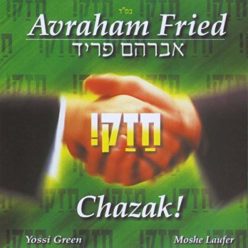Songs to Live by
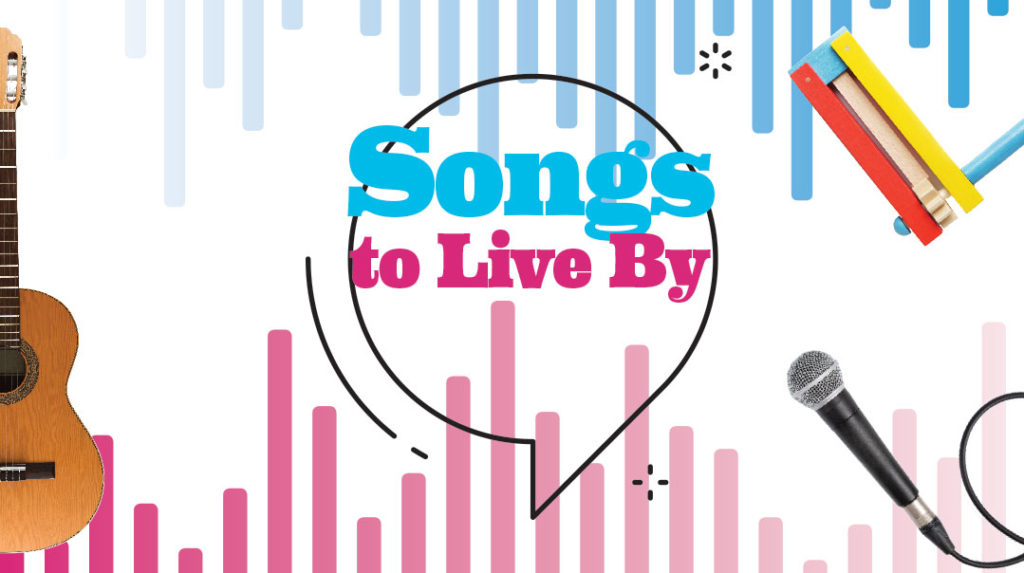


D

ovid Lowy is one artist who has received a lot of attention recently, whether for his own singles — “Colorful” and “Mashiach” — or his vocals on several popular recent music videos. There’s a certain easygoingness about his sound — like he’s happy to share his music and himself with fans. But it wasn’t always like that.
“I’ve always loved music, but as a kid, I would never have dreamed of standing in front of others and sharing it,” reveals Lowy, a guitarist, singer, and songwriter who lives in Ramat Beit Shemesh and often sings at simchahs and events. “My older brother was a well-known Miami soloist, but when my parents asked me to try out, I ran the other way. I turned down several opportunities to sing, my shyness and fears shutting me down. It was after I reached adulthood that I finally faced down my fears. I told myself that fear stands for False Emotions Acting Real, and I walked into voice lessons, demos, and soon, an album.” With two albums (Ata Imadi, Inspire), and a new hit single called “Shiru,” the shyness is obviously gone, leaving an energetic, happy, and melodic vibe behind.
(Originally featured in Mishpacha, Issue 799)
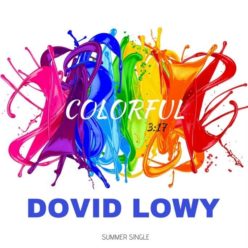
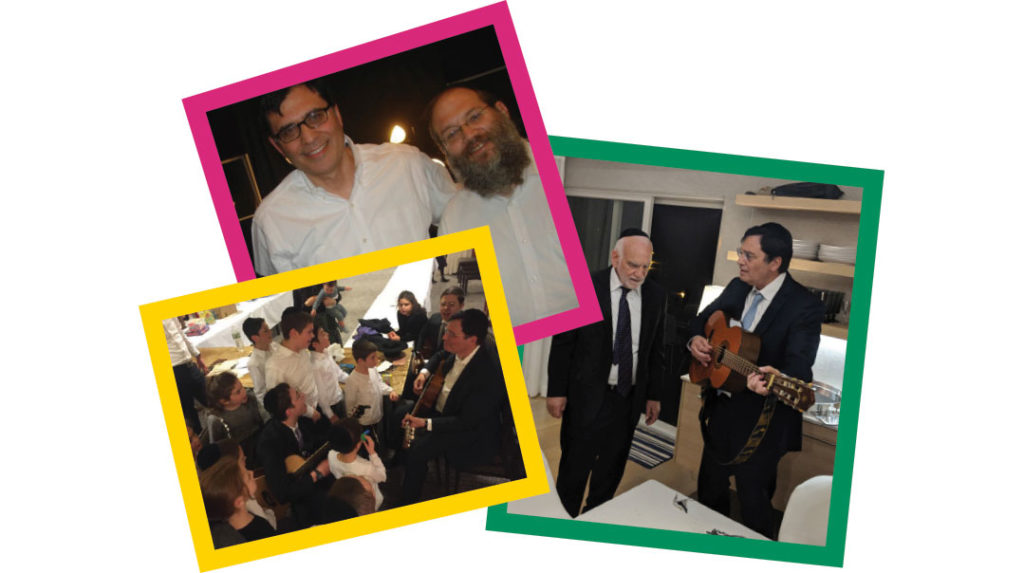
I

f you’re still humming those classic early Ali Scharf songs from the 1970s and ’80s, then you’re definitely dating yourself. But you’re also probably looking back warmly at an era when the Jewish music scene was less crowded, arrangements were instrumental and nonelectronic, intros signaled your favorite hits, and unhurried ballads were sung and resung endlessly at camps and youth groups.
“For me, it was never about the beat and the rock and the volume,” says Ali Scharf, composer, songwriter, and singer, who’s most familiar to more contemporary audiences as the songwriter for the four Schwebel, Scharf & Levine albums, a collaboration with Rivie Schwebel and Dov Levine. (The last album came out in 2011, after a decade’s break.) “It was about the longing, and the melody. I want every song I compose to have a chiddush, either a novel chord combination or a fresh meaning in the lyrics.”
Scharf considers Rabbi Baruch Chait and Abie Rotenberg as his musical mentors. “Abie consistently writes beautiful melodies, and he never repeats himself. Both he and Baruch Chait ‘build up’ their melodies musically — and both of them had been influenced by Carlebach, the ultimate musical genius. Those hundreds of melodies he produced using just three chords, with simplicity and genuine originality, are at the center of Jewish composition today.”
Ali Scharf and Rivie Schwebel joined up musically years ago, but they were friends even before. Ali had been composing since he was bar mitzvah age, with his songs appearing on the vintage Pirchei, Neginah, JEP, and D’veykus albums. He composed the tune to the classic “Ish Chassid” on JEP II (1975), as well as the accompanying English words so many children of the 1970s grew up with (“One night a man knocked on my door, at a glance I could see he was poor… Remember my child as long as you live, to people in need tzedakah to give…”); and who could forget the leibedig “Bo Eshbos” (“Veshivisi Hashem likrasi…”) from Pirchei 5, or the guitar-strumming “Va’ani Sefilasi” from D’veykus 2?
Scharf’s first studio voice encounter happened when he decided to go with his friend Rivie Schwebel, who was already a voice on several records, to the studio one day. “I went along to hear him sing — but Rivie insisted I go into the booth and sing part of the song myself.” Producers Suki and Ding, who were just starting out themselves, were present and they liked the fresh voice. Soon, Ali received calls from them and became a staple voice on their Uncle Moishy and Torah Island albums, and many other Suki and Ding productions, such as the nostalgia-generating Encore! and English Classics. Back in 1978, he and Schwebel were also the adult vocalists on the Amudai Shaish 2 boys choir album.
At one point it occurred to him that instead of selling his songs to others, he could sing them himself. “There is always a certain frustration when someone else records your composition,” Ali reflects. “The producer and arranger interpret the music slightly differently from your own musical vision, and the backup vocals or harmonies may not be exactly your taste.”
Scharf and Schwebel, together with Yussi Sonnenblick, originally collaborated on an album called Mi Yaaleh (which was rereleased 20 years later under the title The Lost Album). The duo eventually became Scharf, Schwebel, and Levine — a winning trio of voices that captured hearts across the age range. After the release of their debut album, The Pintele Yid, the group gave several performances to sellout crowds in New York City’s Carnegie Hall and European venues.
It’s difficult to pick the most impactful from a sheaf of great songs, including classics that the group made famous, such as Rabbi Chait’s “Lo Amus” (from their second album, Areshes Sifsosaynu, with songs of Ali Scharf and Baruch Chait), but one of the most beloved Ali Scharf songs is the moving “Daughters,” a sweet, thankful tribute to his own family of girls that has been rerecorded many times, its melody borrowed for other compositions as well. The song is from The Pintele Yid, whose title track of the same name became a hit English song, reflecting the hope for our estranged brothers and sisters (“Did you have to remind me, I thought it was all behind me…”).
Arranger Suki Berry, who learned in Yeshiva Rabbeinu Chaim Berlin together with Scharf, has written the arrangements for all his albums, and the two still talk about getting together for another run.
(Originally featured in Mishpacha, Issue 799)

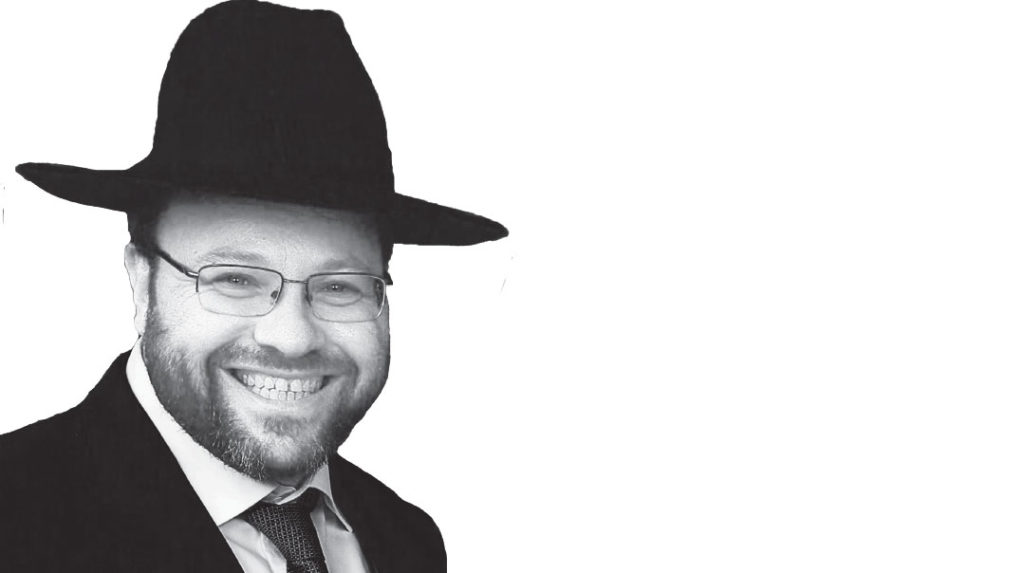
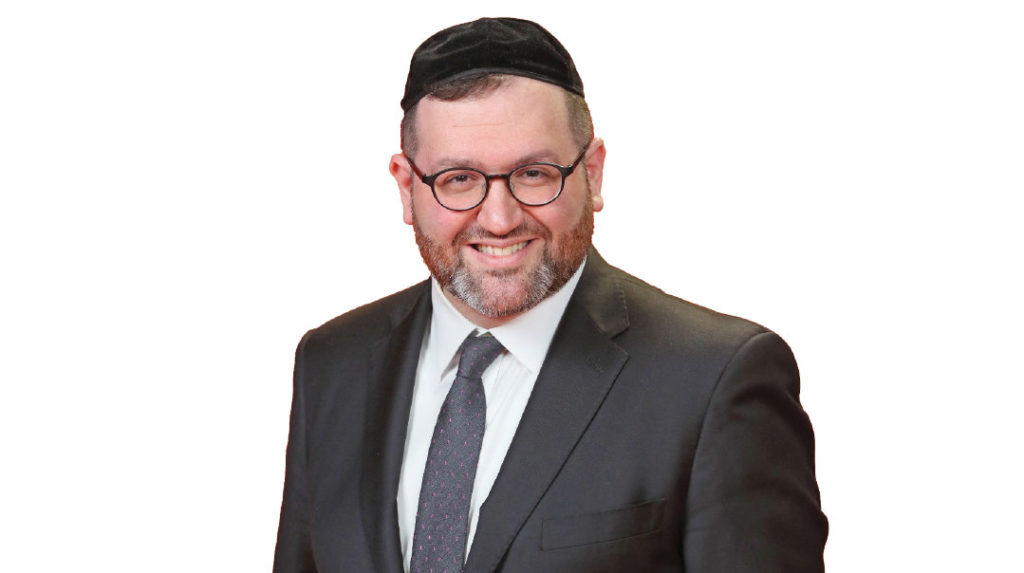
Fans of Eli Gerstner are celebrating: He’s back releasing another Yeshiva Boys Choir album after a five-year break. Why the wait? Immediately after releasing Yeshiva Boys Choir 6 in 2014, Gerstner took on the project he’s currently most involved in — producing events such as the annual HASC concerts. The tours recorded on the new Yeshiva Boys Choir — Our Greatest Hits Live Tour album actually took place over the last six years, but Eli’s schedule was simply too packed to get to the finish line of production. He, together with his YBC partner, conductor and choreographer Yossi Newman, have finally put it all together to release an album with over two hours of hit songs sung by great soloists past and present — including the moving “Daddy Come Home” with vocals by his own brother, soloist Yaakov Mordechai.
(Excerpted from Mishpacha, Issue 795)
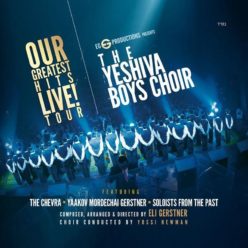



W
hen he was a kid, Avremel Friedman went public as a child soloist on several albums — but while the light of most child stars dims as their voices change, Avraham Fried’s only became brighter. Ten years later, his 1981 debut album, No Jew Will Be Left Behind, turned into the beginning of a nearly four-decade stretch, as listeners connected to his niggunim of the neshamah. Through hundreds of songs and dozens of albums, we’ve sung and swayed, danced and prayed. And now we’ve asked our readers:

Every Motzaei Shabbos, I’m pulled out of that peaceful Shabbos atmosphere and off to attack the dishes. Every single week — without even putting the actual tape on — I start singing to myself:
“A gutte voch mit broche, hazloche, yeshuos, refuos und nachas und chein — Freilich lomir dem Shabbes begleiten ….” Avraham Fried put so many tefillos into this wonderful song.
I once asked Rav Shimshon Pincus ztz”l his opinion about having music on all day in the house. Rav Pincus answered me: Always listen to music with words, as most of them are pesukim of tefillah and that should awaken our heart to daven! May Avraham Fried and all the other wonderful singers have many more healthy years to arouse our hearts to avodas Hashem — even while we are busy with worldly things like washing dishes.
—R. Spielman, Zürich
“A Gutte Voch” is the perfect song to take you into the new week. It’s a favorite in my home and is sung around the Melaveh Malkah table every Motzaei Shabbos. I had the good fortune to co-write the lyrics with the master lyricist Reb YomTov Ehrlich a”h. It He Sheya Mendlowitz who suggested we use this old niggun, and it was a perfect match. L'chayim! Ah gutte voch zol unz zein.
HEAR ALL THE FRIED FAVORITES!
(Originally featured in Mishpacha, Issue 791)
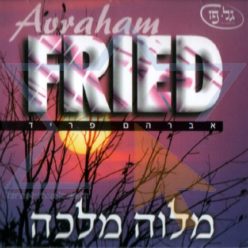
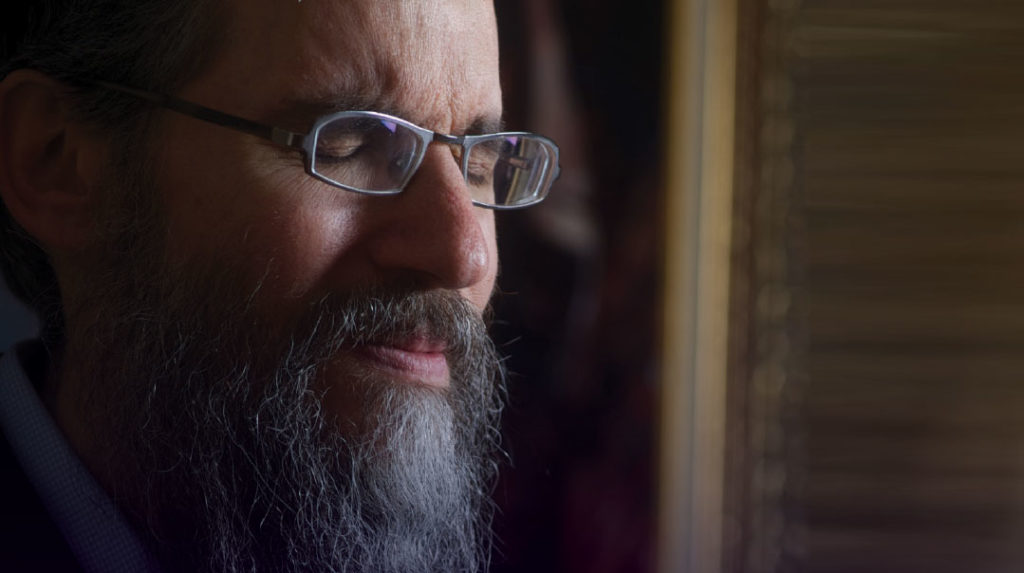
When he was a kid, Avremel Friedman went public as a child soloist on several albums — but while the light of most child stars dims as their voices change, Avraham Fried’s only became brighter. Ten years later, his 1981 debut album, No Jew Will Be Left Behind, turned into the beginning of a nearly four-decade stretch, as listeners connected to his niggunim of the neshamah. Through hundreds of songs and dozens of albums, we’ve sung and swayed, danced and prayed. And now we’ve asked our readers:
The words aren’t exactly standard fare in Jewish music — in the slow, heartfelt start, we pray to be healed and our lives spared, knowing that Hashem is the only one to save us. Then, the uplifting chorus reminds us that when we come together and pray for each other, smile and celebrate the joyous Day of Rest, we can merit to be healed of our physical illness. As in all good Fried songs, the Yossi Green vocal assist is spot on.
—Tzvi Hearsh
Indeed, this song has been sung at many a bedside in hospitals and other places where someone was in need of a refuah. It was an ingenious idea on Yossi’s part to take words from Tehillim where Dovid Hamelech is asking for his own refuah, and then to take words from the Mi Shebeirach that is said for someone in need of a refuah, turning the tefillah into a comfort for everyone.
(Originally featured in Mishpacha, Issue 791)
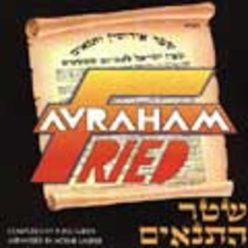

When he was a kid, Avremel Friedman went public as a child soloist on several albums — but while the light of most child stars dims as their voices change, Avraham Fried’s only became brighter. Ten years later, his 1981 debut album, No Jew Will Be Left Behind, turned into the beginning of a nearly four-decade stretch, as listeners connected to his niggunim of the neshamah. Through hundreds of songs and dozens of albums, we’ve sung and swayed, danced and prayed. And now we’ve asked our readers:

I tend to enjoy the music of my youth, but I recently chanced on a newer Fried song which quickly became a favorite: “Zeh Lazeh,” track seven on his all-Hebrew album Kama Tov Shenifgashnu. It took a few repeats for me to pick up all the lyrics, but when I did, I was completely enraptured. A soul-stirring, symphonic-orchestra style melody with an equally profound set of lyrics — it still takes my breath away each time I hear the song.
The lyrics tell a moving story. In Heaven there’s a palace, and the King sits inside. A big door adorns the front, but entry is elusive. Prayers, tears, and all else have failed to unlock that imposing door. There remains but one way to secure entry: “Im kol Yisrael yoshitu yadayim zeh lazeh — if all Yidden link arms together, yitztarfu hayadayim v’yagi’u ad kisai hakavod — the chain formed by that connection can reach to the Heavenly throne.”
If that hand, at the end of the chain, knocks on the door, the song concludes, that impenetrable door would swing open wide. A contemporary song. But the lesson is timeless.
—Yitzy Stern, Lakewood, NJ
Very interesting choice. I thought this song would catch on real big. It hasn’t yet. It was a holy Yid who said that, “If all Yidden would join hands it would reach Shamayim.” I added the idea, that if with this united chain of hands we would knock on Heaven’s door, it would surely open. Let’s keep knocking.
(Originally featured in Mishpacha, Issue 791)


When he was a kid, Avremel Friedman went public as a child soloist on several albums — but while the light of most child stars dims as their voices change, Avraham Fried’s only became brighter. Ten years later, his 1981 debut album, No Jew Will Be Left Behind, turned into the beginning of a nearly four-decade stretch, as listeners connected to his niggunim of the neshamah. Through hundreds of songs and dozens of albums, we’ve sung and swayed, danced and prayed. And now we’ve asked our readers:
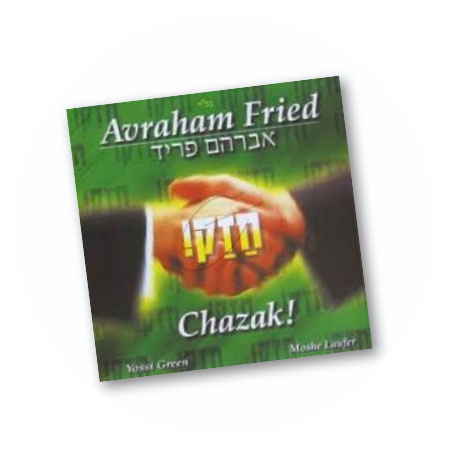
My personal favorite song is “Mah Yedidus,” composed by Yossi Green. Each stanza is sung differently, but the chorus “Lehisaneg Besaanugim” is always the same. The final stanza of “Me’ein me’ein olam haba” is very hartzig, with the tefillah of “meichevlei Mashiach yutzolu lirvachah” repeated over and over. We sing it at our Shabbos table and my family knows a lot of Yossi’s harmonies and kneitchen. My wife’s favorite part is “vehasheina meshubachas — sleep is praiseworthy!" Avraham Fried is the king!
That song brings back happy memories of when Yossi Green and I were recording it. Such a happy song with different movements for every stanza. A masterpiece. Someone who booked me for a simchah recently told me: “I have just one request. I want you to sing 'Mah Yedidus.'”
(Originally featured in Mishpacha, Issue 791)
